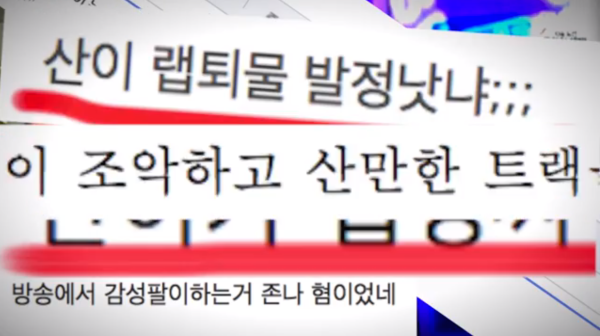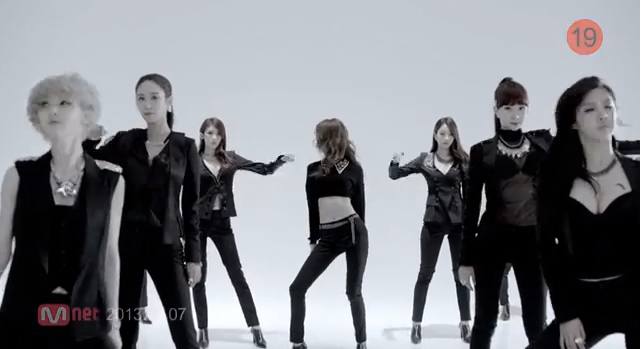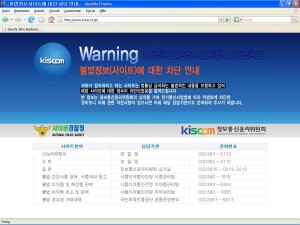 Here at Seoulbeats, we’ve discussed the history of the netizen, as well as given a quick breakdown of popular netizen communities. While I hope both articles were informative, they both gestured toward a rather large elephant in the room: South Korea’s use of internet censorship. Like many other aspects of Korean internet culture, the relationship between internet censorship and larger media censorship go hand in hand — especially as media platforms become more fluid in an ever technologically-advancing country like South Korea.
Here at Seoulbeats, we’ve discussed the history of the netizen, as well as given a quick breakdown of popular netizen communities. While I hope both articles were informative, they both gestured toward a rather large elephant in the room: South Korea’s use of internet censorship. Like many other aspects of Korean internet culture, the relationship between internet censorship and larger media censorship go hand in hand — especially as media platforms become more fluid in an ever technologically-advancing country like South Korea.
For a country that boasts the fastest internet speeds in the world and one of the most highly connected populations — with 77.8% of all citizens identifying themselves as internet users and over 84% of all homes having internet access — many credit South Korea as being ahead of the curve when it comes to internet culture. With internet technologies, perhaps. However, the South Korean government still exercises some pretty intense efforts to regulate and censor the internet that they so often brag about.
In fact, South Korean internet regulation is restrictive enough to land South Korea on the list of “countries under surveillance” for internet censorship with Reporters Without Borders. When discussing internet censorship in South Korea, there are a few main areas of question. First, why are censorship laws in place? Second, who regulates and enforces censorship laws? Third, what content is deemed ‘subversive”? Lastly, what are the impacts of such censorship on netizen culture?
The History of Media Censorship in South Korea
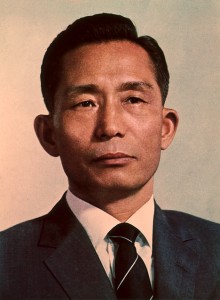 Contemporary South Korean internet censorship — and more broadly media censorship — has its roots back in the military regimes of Park Chung-hee and Chun Doo-wan. During both these military regimes, criticism of the government by the media was all but forbidden, and the press was highly regulated through the National Security Law that remained from the conclusion of WWII. The law was enacted for many reasons, but the main being security within the war-torn peninsula and the regulation of information that could potentially endanger the fragile government (or public opinion). The Basic Press Act was later introduced by Chun Doo-wan in 1980 that not only enacted stricter censorship laws, but set extensive guidelines for how information should be reported to the public.
Contemporary South Korean internet censorship — and more broadly media censorship — has its roots back in the military regimes of Park Chung-hee and Chun Doo-wan. During both these military regimes, criticism of the government by the media was all but forbidden, and the press was highly regulated through the National Security Law that remained from the conclusion of WWII. The law was enacted for many reasons, but the main being security within the war-torn peninsula and the regulation of information that could potentially endanger the fragile government (or public opinion). The Basic Press Act was later introduced by Chun Doo-wan in 1980 that not only enacted stricter censorship laws, but set extensive guidelines for how information should be reported to the public.
With the political liberation of the late 1980s came the lifting of most of the media censorship and reporting bans imposed by previous regimes. However, even with a new constitution in 1987, the National Security Law remained in effect and was only further empowered through the Telecommunications Business Act of 1991. Since South Korea is still technically ‘at war’ the NSL still continues to justify media censorship to this day.
The KCC and the KCSC
With democratization also came the emergence of new technologies, specifically the internet, and a need for a new approach on how to regulate content. So who exactly is responsible for monitoring internet content?
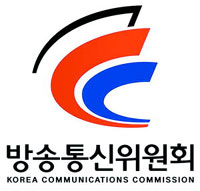 Since 1989 there have been a number of government agencies that have overseen the media, and it would be a waste of acronyms to list them all. As it stands now, the Korean Communications Committee (KCC), established in 2008, oversees all media content and agencies. The Korean Communications Standards Committee (KCSC, formerly KISCOM), is the government agency responsible specifically for the regulation of the internet. Both agencies function as “quasi-State and quasi private [entities].”
Since 1989 there have been a number of government agencies that have overseen the media, and it would be a waste of acronyms to list them all. As it stands now, the Korean Communications Committee (KCC), established in 2008, oversees all media content and agencies. The Korean Communications Standards Committee (KCSC, formerly KISCOM), is the government agency responsible specifically for the regulation of the internet. Both agencies function as “quasi-State and quasi private [entities].”
There is also the Korean Internet Self- Governance Organization (KISO) which is an autonomous board that represents a handful South Korean Internet providers and companies including: Naver, DaumKakao, SK Communications, KT and Afreeka TV. The alliance “[focuses] on sound management and self-governance” and acts as the interim step between a KCSC report and content being removed — which is pretty important considering that the posters of URLs in question with the KCSC are not given an opportunity to defend themselves in censorship deliberations.
The KCC is made up of a government-appointed board who set the guidelines for what content should be monitored, and the KCSC is the body that seeks out such content. KCSC then submits “requests” to KISCO or the hosting site in question to have content taken down, or blocked within the country — and rarely are their requests denied. Citizens can also report content directly to the KCSC, and save the government bureaucrats a bit of effort.
Beyond the agencies themselves, content is also monitored and regulated through the enforcement of Real Name Verification. Which, as a reminder, is the requirement of netizens to verify their accounts with personal information before being able to contribute online content to high-traffic sites. This process allows the government to trace posts back to specific netizens. More importantly though, Real Name Verification serves as a motivation for self-censorship to wary netizens.
“Subversive Content” and other Regulated Media
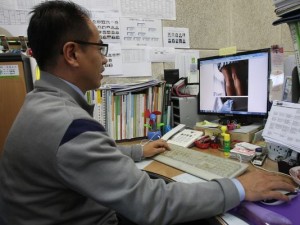 With all those confusing Acts and acronyms behind us, it’s time to clarify exactly what is censored online. The regulating bodies reserve the right to block content that is deemed “subversive” and “harmful to the public order.” More explicitly, this includes: pornography, nudity, materials harmful to minors, cyber defamation, sexual violence, content that praises North Korea and anti-military content.
With all those confusing Acts and acronyms behind us, it’s time to clarify exactly what is censored online. The regulating bodies reserve the right to block content that is deemed “subversive” and “harmful to the public order.” More explicitly, this includes: pornography, nudity, materials harmful to minors, cyber defamation, sexual violence, content that praises North Korea and anti-military content.
So yes, online pornography is technically illegal in South Korea. I say technically, because although it is illegal to produce and sell pornography, possessing and viewing pornography is still perfectly legal. As for production, “erotic videos” are a crafty, soft-core solution to the issue, and those who want to access “illegal” content really have no issue at all getting it. So little issue, in fact, that South Korea is the number one consumer of pornography in the world — and I assure you, most of it isn’t Korean-made “erotic” films.
Even with all this regulation in place, the South Korean government maintains that “South Korean people have the freedom to criticize government policies or political leaders” — so long as the internet discourses and critiques do not “endanger ‘national security’ or develop into ‘cyber defamation.’” The internet is a highly effective medium for controlling public opinion, after all.
Online Media Censorship
The current state of South Korean internet censorship can be broken down into two main categories: the regulation of online news, and the monitoring of netizen communications and contributions — or, the regulating of what content citizens have access to, and the continued tracking of the content they themselves contribute.
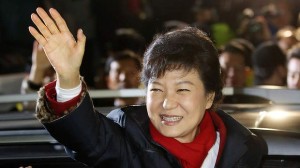 In 2015, the rate of online censorship continues to increase, and not necessarily in proportion to internet proliferation rates. Back in 2009 the KCSC made 4,500 requests for page deletion or blocking; by 2013 that number grew dramatically to 23,000 (with an additional 63,000 sites were blocked domestically); In 2014, the rates continued to climb with nearly 80,000 requests.
In 2015, the rate of online censorship continues to increase, and not necessarily in proportion to internet proliferation rates. Back in 2009 the KCSC made 4,500 requests for page deletion or blocking; by 2013 that number grew dramatically to 23,000 (with an additional 63,000 sites were blocked domestically); In 2014, the rates continued to climb with nearly 80,000 requests.
Though the KCSC provides quite a lengthy list of censor-able material, it seems that such things could hardly account for the thousands of sites that are both blocked and taken down annually. That’s where the grey area comes into play. The KCSC reserves the right to block and censor content that may “harmful to the public order.” Alongside that mission, comes the ever-confusing Article 21 of the Constitution — which, ironically, is also the article that ensures free speech. The Article states that:
Neither speech nor the press shall violate the honor or rights of other persons nor undermine public morals or social ethics. Should speech or the press violate the honor or rights of other persons, claims may be made for the damage resulting there from.
 “Defamation,” is a tricky word that is thrown around quite a bit in South Korean law. Furthermore, “cyber defamation” is a criminal offense, and the KCSC is responsible for handling online defamation requests. More often than not, the government — and other individuals — cite defamation as the reason for information to be taken down. This has especially been the case with the current Park Geun-hye administration.
“Defamation,” is a tricky word that is thrown around quite a bit in South Korean law. Furthermore, “cyber defamation” is a criminal offense, and the KCSC is responsible for handling online defamation requests. More often than not, the government — and other individuals — cite defamation as the reason for information to be taken down. This has especially been the case with the current Park Geun-hye administration.
The Sewol Tragedy in April 2014 not only shocked the nation, but also raised the question of exactly how much the government was regulating media content and reports. Following the scandal, Park Guen-hye and her administration — who were already in hot water after numerous other scandals — came under enormous scrutiny for their handling of the tragedy in addition to how the story was reported in the media.
In response to the criticism, the Park administration cracked down, not only on online articles, but on journalists. Most notably, Japanese reporter Tatsuya Kato, who was charged with criminal libel after speculating on the President’s whereabouts during the tragedy in an online article for the Chosun Ilbo.
 The government doesn’t always have to take information down or indict journalists to regulate the press either. Oftentimes, when a political scandal rises, netizens notice a trend of a celebrity scandal breaking around the same time: When a National Intelligence Service killed himself in wake of a hacking scandal (more on that later), Kim Woo-bin and Shin Min-ah were revealed to be dating; Lee Myung Bak embezzles millions, Suzy and Lee Min-ho become an item; Prime Minister Lee Won-goo is accused of bribery and Yuri is caught dating. Instead of blatantly censoring articles that report on such matters — though they still often do remove several articles — critical articles can be buried by other high-traffic reports — like who’s getting it in with who.
The government doesn’t always have to take information down or indict journalists to regulate the press either. Oftentimes, when a political scandal rises, netizens notice a trend of a celebrity scandal breaking around the same time: When a National Intelligence Service killed himself in wake of a hacking scandal (more on that later), Kim Woo-bin and Shin Min-ah were revealed to be dating; Lee Myung Bak embezzles millions, Suzy and Lee Min-ho become an item; Prime Minister Lee Won-goo is accused of bribery and Yuri is caught dating. Instead of blatantly censoring articles that report on such matters — though they still often do remove several articles — critical articles can be buried by other high-traffic reports — like who’s getting it in with who.
Censoring the Netizen
Remembering the important role of netizen discourse, it’s not only articles and webpages that are deleted. The KCSC actually has a special sub-committee that exists solely for the purpose of scouring social media sites (SNS) and deleting comments and postings they deem inappropriate or overly-critical.
The Korea Communications Standards Commission and the National Election Commission have been trying to block accounts or fine online users for online comments critical of the government or the ruling party.
KISCO seeks to fight the regulation of online user comments and in 2010 they announced that they would no longer accept demands to delete comments posted on their represented sites. Instead, the KCSC has to file requests and prove that the posted information was false — not just unflattering. Even if KISCO refuses to remove the comments, the portal can be fined a considerable amount by the KCSC. As for netizens, if the comments are not taken down, the users may still face consequences for their postings as well.
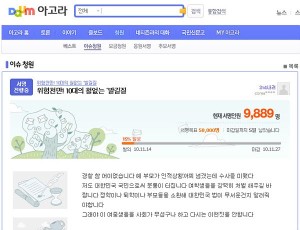 The case of Daum Agora user, Minerva, serves as a memorable example of such enforcement: the user was jailed for violating the Telecommunications Business Act after posting grim predictions of South Korea’s economic downturn back in 2009. Another South Korean Twitter user was also arrested for tweeting about North Korea. Multiple netizen arrests occurred in the wake of the 2008 Beef Protests, and we as K-pop fans have read many a story of netizens being sued for malicious comments.
The case of Daum Agora user, Minerva, serves as a memorable example of such enforcement: the user was jailed for violating the Telecommunications Business Act after posting grim predictions of South Korea’s economic downturn back in 2009. Another South Korean Twitter user was also arrested for tweeting about North Korea. Multiple netizen arrests occurred in the wake of the 2008 Beef Protests, and we as K-pop fans have read many a story of netizens being sued for malicious comments.
As Dong-Hyun Song points out, these arrests took place as much to regulate information as they did to instill fear in the average netizen (as if real name verification didn’t seem ominous enough already). The fear is very much realized by netizens, who in response to multiple netizen arrests and Real Name Verification have created The Cyber Asylum Seeker’s Project: which seeks to establish online cafes that encourage the movement of users to U.S. registered domains which are free of government regulation.
Cyber Censoring Expansion
It’s no longer just SNS and cafe users that are vulnerable to government monitoring. In 2014 a major scandal broke out when it was revealed that the government was monitoring private Kakao conversations. In the wake of the scandal, Kakao came forward and revealed that they “received 2,131 requests for users’ information from the government with search warrants as well as 61 court-approved requests seeking to wiretap” during the first half of the year alone. (This scandal would only later get messier as in has been revealed in 2015 that the South Korean government also contracted Italian company Hacking Team to purchase spyware software in order to monitor private messaging apps.)
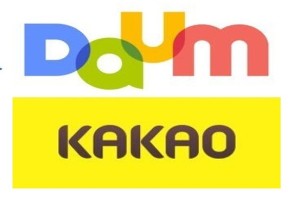 Of course, every government exercises some measure of control over the content available online. What sets South Korea apart is the remarkable amount of content that is either blocked or taken down daily. Why does the government take such strong measures to regulate online information? Beyond the political motivations, the South Korean government still views itself as a “benevolent parent of the masses” and regulation of online content is as much for the government’s benefit as it is for the citizens’.
Of course, every government exercises some measure of control over the content available online. What sets South Korea apart is the remarkable amount of content that is either blocked or taken down daily. Why does the government take such strong measures to regulate online information? Beyond the political motivations, the South Korean government still views itself as a “benevolent parent of the masses” and regulation of online content is as much for the government’s benefit as it is for the citizens’.
With all the censoring, monitoring and regulating that goes on online everyday, it’s a wonder that quite a deal of problematic content is still available online. For example, the vileness of Ilbe is up and running, as are many malicious comments made against celebrities. The KCSC maintains that the internet is a safe place for opinions — and for the most part they do follow through with that liberty. What’s blocked and censored online really stems less from a concern for public safety, and more from who the content will damage if the public has access to it. So as long as you don’t anger The Saenuri Party, Chaebols, or religious groups, you’re kind of in the clear. Kind of.
(EFF, Economist [1] [2], USA Today, Press Reference, Daum, DaumKakao, KISO, Nate, Open Net Initiative, Freedom House, Korea Herald, Jongplil Chung, Comparing Online Activities in China and South Korea. Thomas Kalinowski & Sang-young Rhyu, South Korea Report. Eun Suk SA, Factors Influencing Freedom of the Press in South Korea. Jinsun Lee, “The Netizen Movement” in Contemporary South Korean Society. Eun Suk SA, Development of Press Freedom in South Korea Since Japanese Colonial Rule. Dong-Hyun Song, Power struggles in Korean cyberspace and Korean cyber asylum seekers. Frank La Rue, UN Report of the Special Rapporteur on the promotion and protection of the right to freedom
of opinion and expression. Act on Promotion of Information and Communication
Network Utilization and Information Protection. Images via: KCC, Daum, Associated Press, Dispatch)
